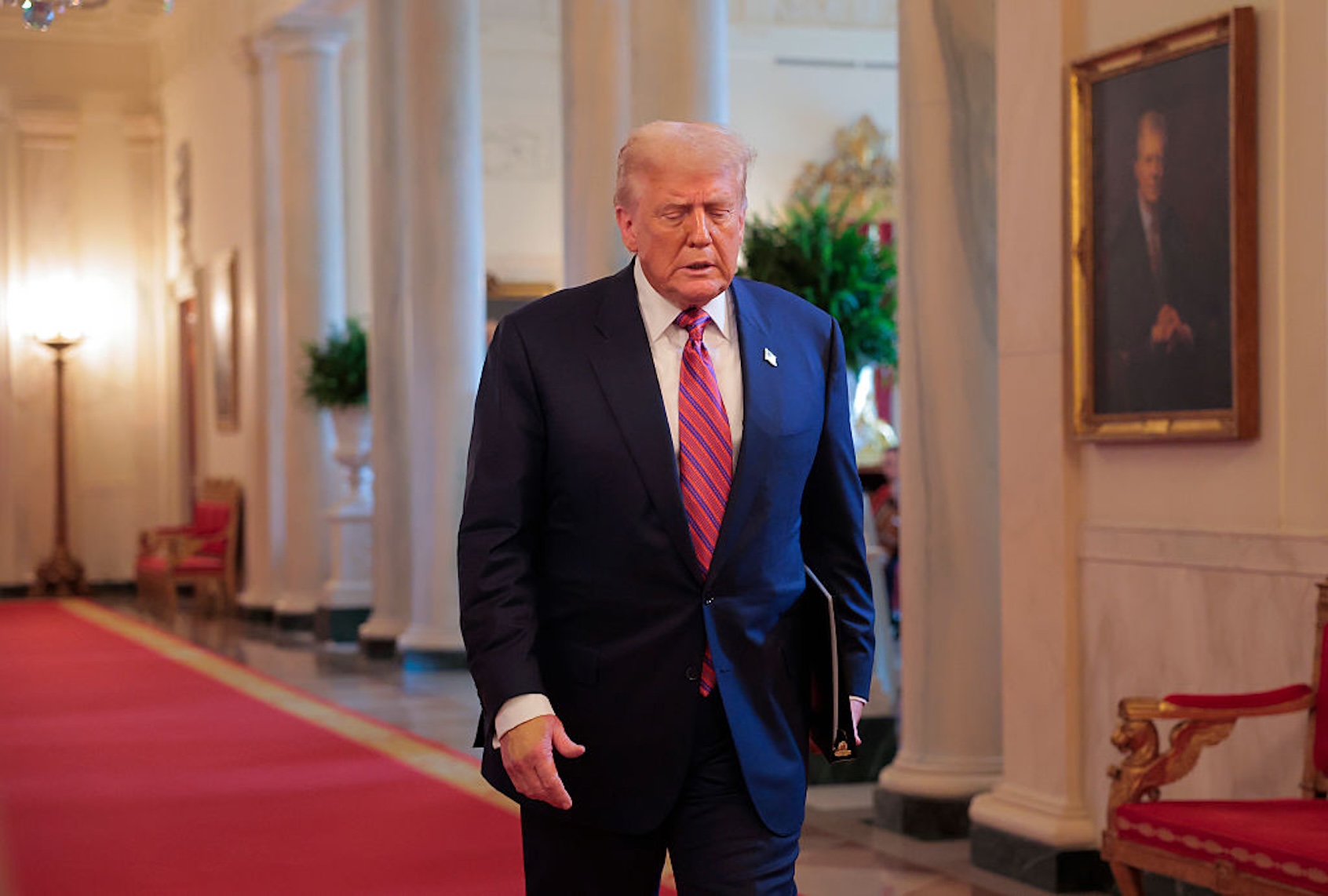Politics
Trump Shares Satirical Claim About Obama’s “Obamacare Royalties”

President Donald Trump recently shared a satirical claim regarding Barack Obama on his social media platform, Truth Social. The post alleged that Obama received annual royalties from the federal government for the use of the term “Obamacare,” which refers to the health insurance program established under the Affordable Care Act. Trump’s post, which attracted attention from his 11 million followers, stated that payments of $2.5 million had been made to Obama since 2010, amounting to a total of $40 million in taxpayer dollars.
The claim has no basis in reality, as “Obamacare” has not been trademarked and, therefore, cannot generate royalties. The information originated from an online publication called the Dunning-Kruger Times, a satirical site known for fabricating outlandish claims. The website explicitly states that its articles are fictional, warning readers that any resemblance to actual events or people is coincidental. Their About page clarifies, “Everything on this website is fiction. It is not a lie, and it is not fake news because it is not real.”
Trump’s enthusiastic sharing of this unverified claim raises concerns about the spread of misinformation. The former president’s comment on the claim was simply, “Wow!” demonstrating his apparent endorsement of the content without any critical examination of its validity.
As political discourse continues to be influenced by social media, incidents like this highlight the challenges of separating fact from fiction in the public arena. The Dunning-Kruger effect, from which the website takes its name, describes the tendency for individuals with limited knowledge on a subject to overestimate their understanding. This phenomenon is particularly relevant in the context of political communication, where misinformation can rapidly proliferate.
Trump’s post serves as a reminder of the importance of critical thinking and verifying information before sharing it, particularly in an era where social media plays a significant role in shaping public opinion. The impact of such claims can extend beyond mere misinformation, potentially influencing political attitudes and actions.
As individuals engage with information in the digital landscape, discerning fact from satire becomes increasingly crucial. The Dunning-Kruger Times itself asserts that its content is not intended to be taken seriously, yet the sharing of their articles by public figures can blur the lines between satire and reality, leading to real-world consequences.
-

 World3 weeks ago
World3 weeks agoGlobal Air Forces Ranked by Annual Defense Budgets in 2025
-

 World4 weeks ago
World4 weeks agoMass Production of F-35 Fighter Jet Drives Down Costs
-

 Science4 weeks ago
Science4 weeks agoTime Crystals Revolutionize Quantum Computing Potential
-

 World3 weeks ago
World3 weeks agoElectrification Challenges Demand Advanced Multiphysics Modeling
-

 Top Stories3 weeks ago
Top Stories3 weeks agoNew ‘Star Trek: Voyager’ Game Demo Released, Players Test Limits
-

 Business4 weeks ago
Business4 weeks agoGold Investment Surge: Top Mutual Funds and ETF Alternatives
-

 Top Stories3 weeks ago
Top Stories3 weeks agoDirecTV to Launch AI-Driven Ads with User Likenesses in 2026
-

 Lifestyle3 weeks ago
Lifestyle3 weeks agoDiscover Reese Witherspoon’s Chic Dining Room Style for Under $25
-

 Entertainment3 weeks ago
Entertainment3 weeks agoFreeport Art Gallery Transforms Waste into Creative Masterpieces
-

 Health3 weeks ago
Health3 weeks agoGavin Newsom Critiques Trump’s Health and National Guard Plans
-

 Business3 weeks ago
Business3 weeks agoUS Government Denies Coal Lease Bid, Impacting Industry Revival Efforts
-

 Lifestyle3 weeks ago
Lifestyle3 weeks agoLia Thomas Honored with ‘Voice of Inspiration’ Award at Dodgers Event








